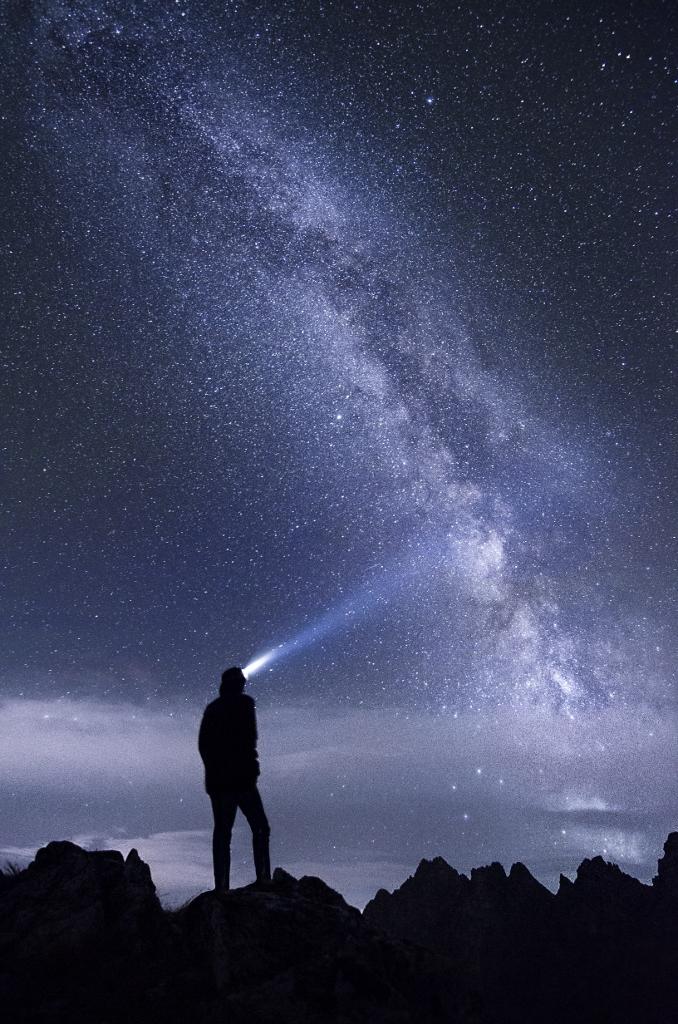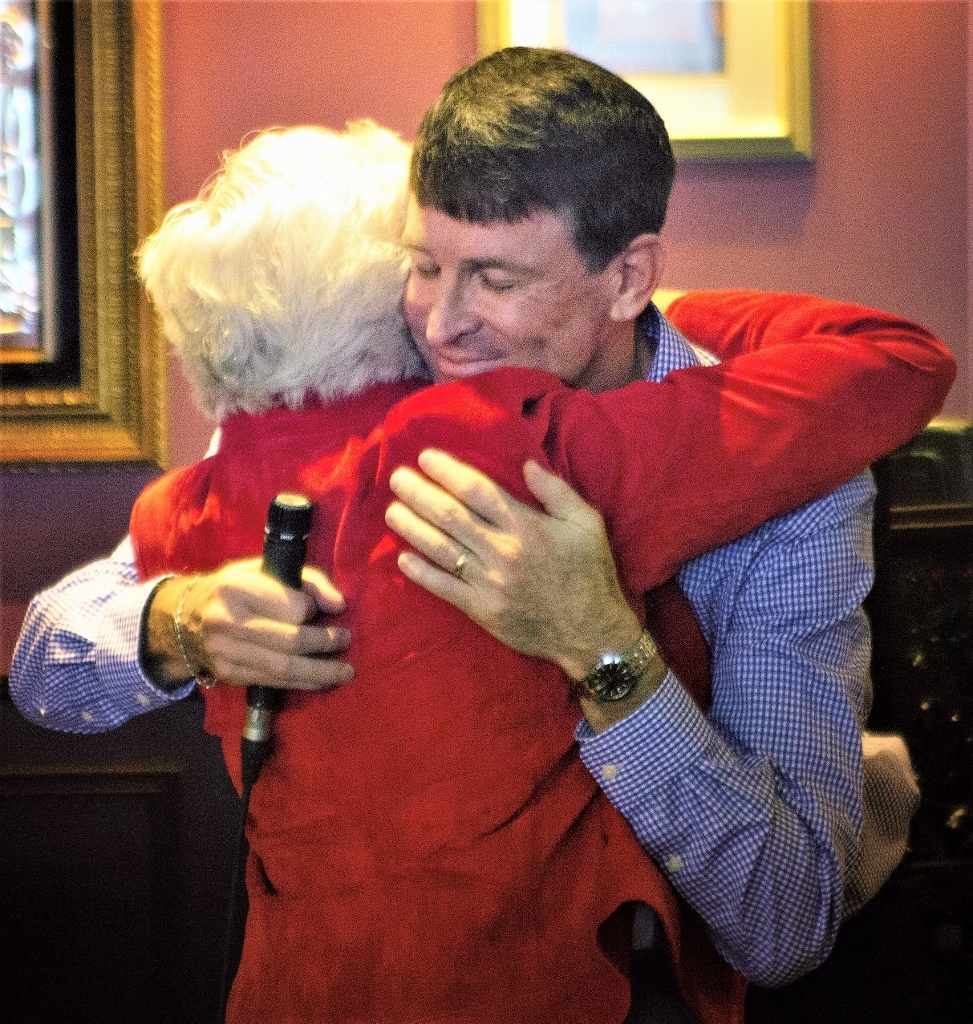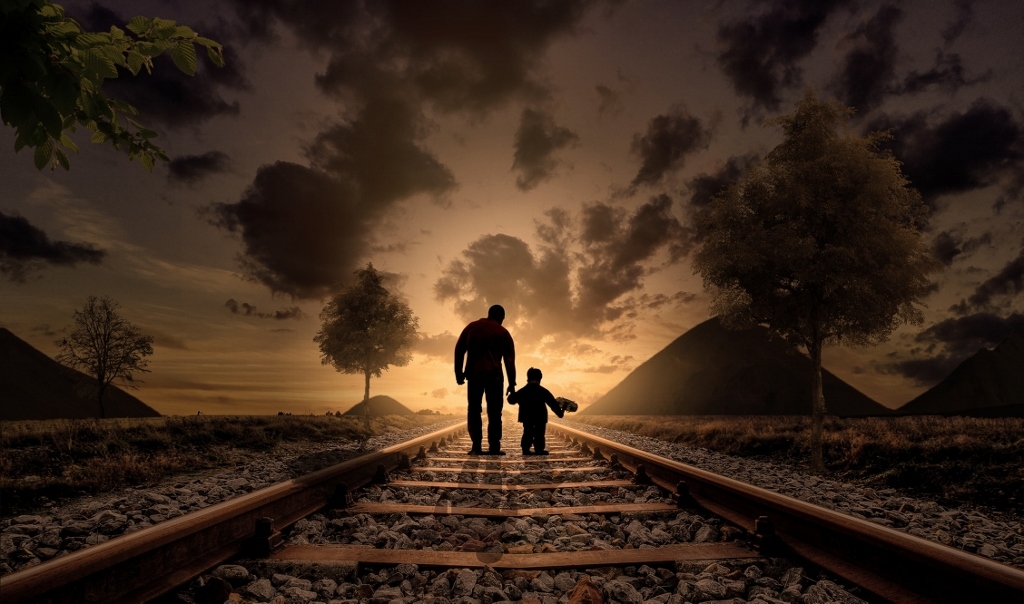
The Other Side of Reason – Stargazer
Involved in a bus accident that took the lives of six people, David Gibson has been battling through PTSD for over three years. In an effort to better understand himself and to communicate with others, he turned to writing. His first book was The Other Side of Reason: A Journal on PTSD, available now via petrabooks.ca. This column continues that text.
[Illumination]
Shooting stars cross the canopy of the night.
Following the Milky Way there seems to be no beginning nor ending to the path in the midnight sky.
I walk through the illumination of my life and count my strides.
I let my feet receive the scars that only a long journey can promise. But I can never let the scars stop me from taking a step, and then another.
Until I find myself nestled by the curve of the moon.
If only … two words, but loaded words nonetheless. If only has the potential to rob you of your tomorrows. If only I did this or that – if only I said something. Many people who have gone through a traumatic experience often express a deep sense of guilt that lingers in the background of their lives, but often surfaces without warning leaving an indelible mark on their daily existence.
Guilt often develops when you think that you have done something wrong. Each person has standards they set for themselves and when these have not been reached they can feel guilty. While it is common to have feelings of guilt after a traumatic experience, if these feelings are too strong or last a long time then they have the potential to stop you from coming to terms with what happened.
I believe it is common to keep thinking about what happened over and over again. You may blame yourself or question whether you reacted in the best way. In looking back at what happened you might also be taking responsibility and blame yourself for what you feel you did or didn’t do to help others. For example, you might be telling yourself ‘I couldn’t help her because I froze with fear’.
You might not have expected yourself to react in this way and as a result you blame yourself for being weak. Or, you might take responsibility and blame yourself for not preventing something from happening, for instance a car accident. You might be thinking, ‘if only I had taken the car that day instead of taking the bus.’
If you experienced a traumatic event where someone else was badly injured or died you may feel guilty because you survived when others didn’t. This is called survivor guilt. Often people feeling like this will find the question ‘Why them and not me?’ going over and over in their mind. Or you may feel responsible for the person’s death, or think the other person should have survived instead of you.
Both physical and mental injuries, which in many cases need long-term treatment, may also lead to feelings of guilt. This might be because you have been unable to return to work or to take on your usual home responsibilities. You may be concerned that this has put pressure on other people.
You may also feel guilt or shame about how this is affecting you emotionally. In the past you might have always felt able to cope with life. Now however, you may experience strong feelings that you have never had before. You may feel the need to ask for help and depend on others. Perhaps you see this as a sign of weakness in yourself, rather than understanding that the way you are feeling is a normal reaction to severe stress.
You may sometimes feel very angry and irritable and take this out on your close family and friends who are nearest to you. This too may lead to feelings of guilt.
So why is it that people often feel guilty after a traumatic event?
In our daily lives we feel that things are predictable and controllable. However, this is not the case for many traumatic events. These tend to be the opposite – unpredictable and uncontrollable. After a traumatic event people sometimes think ‘if only I had done this’ or ‘if only I hadn’t done that’. People sometimes take the blame for something, instead of recognizing that it was beyond their control. Traumatic events, like disasters, or car accident happen and are not controlled or planned. They are after all, out of the ordinary.
As part of my recovery experience, I found that it is important to work towards understanding that some things can happen that are unpredictable and out of our control. Did we ever have any control over what happened? Perhaps we did, but in most instances likely not. ‘It is possible to simply be in the wrong place at the wrong time and that trauma can affect anyone’. Coming to terms with this may mean accepting that traumatic experience can happen, but it also helps to avoid feelings of guilt.
“The beauty of life is while we cannot undo what is done, we can see it, understand it and change so that every new moment is spent not in regret, guilt, fear or anger but in wisdom, understanding and love”. Jennifer Edwards
Until next time.













